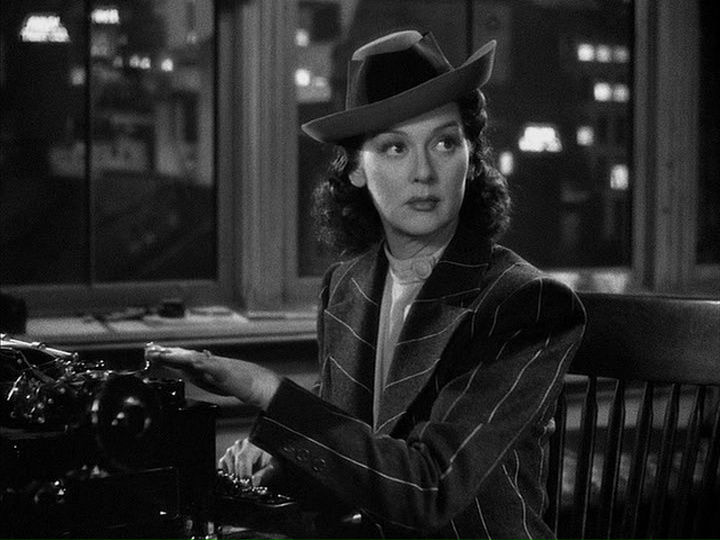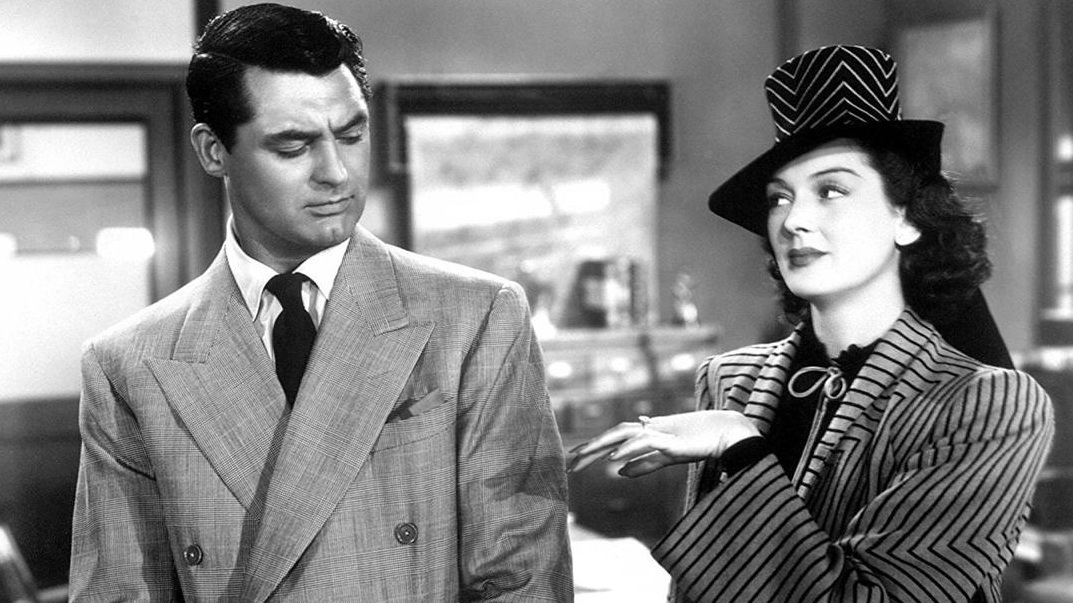10 Women in Science Fiction Films
Women have always been integral to science fiction, and these amazing women prove why.
When Howard Hawks adapted The Front Page into His Girl Friday in 1940, he retained most of the original film’s plot and even some of its dialogue. Both films center on a newsroom covering a politicized murder case. However, Hawks made two key changes: softening the film’s more overt political messages and changing a major character from male to female.
Most likely due to the stricter enforcement of the Hays Code, His Girl Friday tiptoes around the Red Scare whereas The Front Page openly satirizes it. In The Front Page, directed by Lewis Milestone in the pre-Code Hollywood of 1931, the mayor of Chicago blatantly exploits a soon-to-be-hanged suspect for votes by labeling him as a Communist. Conversely, the mayor in His Girl Friday berates one of his cronies for attempting to pull a similar move on his behalf. The Front Page exposes the Red Scare as a political tool used to manipulate the public rather than a genuine threat, which passed censors in 1931 but would almost certainly not have made it to the big screen a decade later.

However, in terms of gender politics, His Girl Friday is far more progressive. In The Front Page, the only significant female character is the protagonist Hildy’s fiancée, Peggy. The film portrays her as a nagging girlfriend who gets in the way of Hildy’s career, signaling the end of his free-wheeling bachelorhood and the beginning of monotonous married life. The newspaper room is an entirely male world, saturated with rampant misogyny that the film neither supports nor challenges. His Girl Friday, however, places a woman at the center of the story. Rosalind Russell’s gender-flipped Hildy is a talented journalist who struggles between her vocational ambitions and her desire for a stable home life. She is universally loved and respected by her colleagues, and Cary Grant’s Walter even describes her as the best writer the paper has. She stands out amid a room of humorously incompetent male journalists, and Walter sees her skill as an attractive quality rather than a threat to his masculinity. Furthermore, Hildy is a divorcée at a time when divorced people (especially divorced women) were often viewed as inherently immoral. It’s noteworthy that the film refrains from judging her marital status — a low bar, to be sure, but one that I wouldn’t expect a film from 1940 to clear.
Another notable difference between the two films is the use of rapid and overlapping dialogue in His Girl Friday. The film’s quick pace and Grant and Russell’s superb comedic timing deliver plenty of laughs. While much of the dialogue between the two films remains unchanged, the advances in sound design and the actors’ snappy delivery in His Girl Friday render it far more understandable and entertaining. For example, in a hilarious early scene, Walter mistakes an elderly man for Hildy’s fiancé, ignoring his protests to the contrary and the real fiancé’s attempts to introduce himself. When Walter realizes his mistake, he immediately dismisses the old man and chides him for “intruding” on his personal affairs. Grant’s alternating rapid-fire lines to both men and Russell’s exasperated bemusement as she looks on sell the scene.
A similarly quick-paced comedic bit appears near the end of the film when Walter and Hildy write a story and bounce ideas off of each other while Bruce desperately tries to have a heart-to-heart with Hildy about their relationship. Hildy’s off-handed placating remarks and Bruce’s growing frustration are entertaining to watch, but the scene also serves an important narrative function by showing that Hildy could never be truly happy as a stay-at-home housewife. The scene culminates in Bruce storming out as Hildy types away and defiantly proclaims, “I’m not a suburban bridge player, I’m a newspaperman!” She’s clearly at her happiest when she’s breaking a story at Walter’s side.

For this reason, His Girl Friday convinced me of the couple’s compatibility. Their relationship is not typical or functional, perhaps not even healthy, but they share a similar worldview and a passion for their careers that outsiders like Bruce can’t understand. They argue constantly, but more often than not their arguments take the form of teasing and verbal sparring rather than genuinely malicious insults. Crucially, they are on equal footing when it comes to trading witty insults and jibes. Hildy can dish out insults as good as (or better than) she takes them from Walter. Of particular note: “Now, get this, you double-crossing chimpanzee! There ain’t going to be any interview and there ain’t going to be any story. And that certified check of yours is leaving with me in twenty minutes. I wouldn’t cover the burning of Rome for you if they were just lighting it up. If I ever lay my two eyes on you again, I’m gonna walk right up to you and hammer on that monkeyed skull of yours ’til it rings like a Chinese gong!” (Forgive me for including such a lengthy quote, but no paraphrase could do it justice.)
Ultimately, in the style of classic literary pairings like Much Ado About Nothing’s Beatrice and Benedick and Pride and Prejudice’s Lizzie and Darcy, Hildy and Walter’s verbal sparring shows their intellectual compatibility. They are truly each other’s equals: both are sharp-witted and stubborn, ambitious to a fault, and willing to compromise their integrity in order to tell a story. The film doesn’t attempt to moralize them or elevate them above the industry it satirizes, which in my view makes them all the more likable. Hildy and Walter eventually take each other as they are, and the film asks us to do the same.

Related lists created by the same author
Women have always been integral to science fiction, and these amazing women prove why.
Related Movie / TV / List / Topic